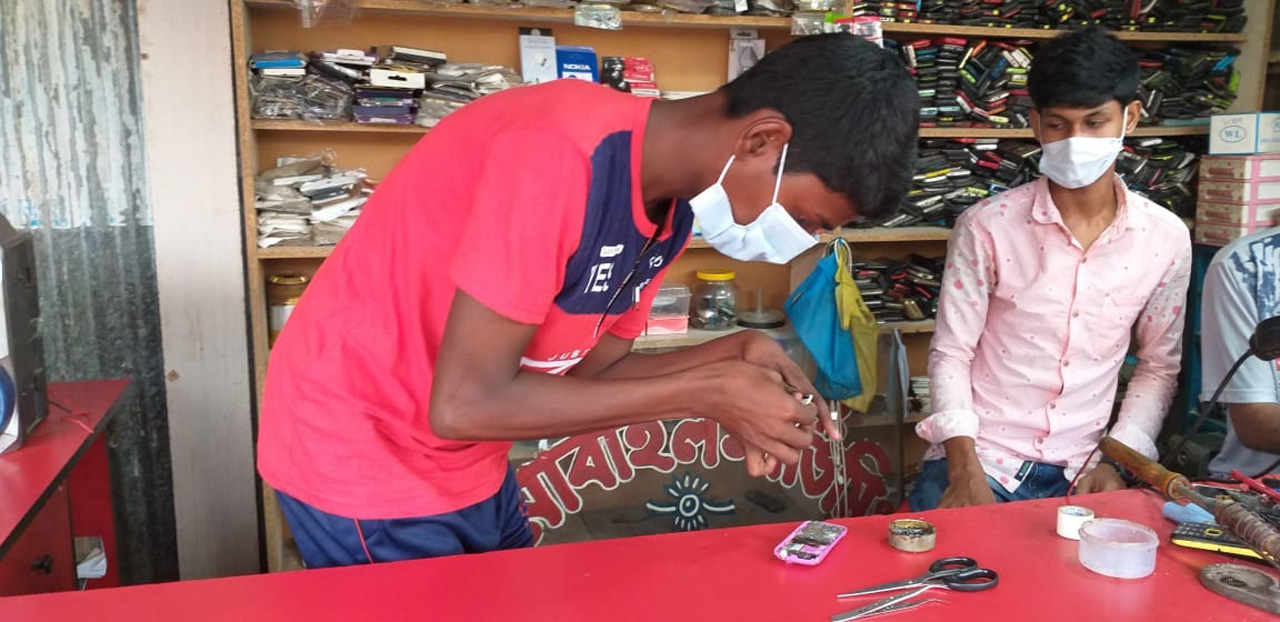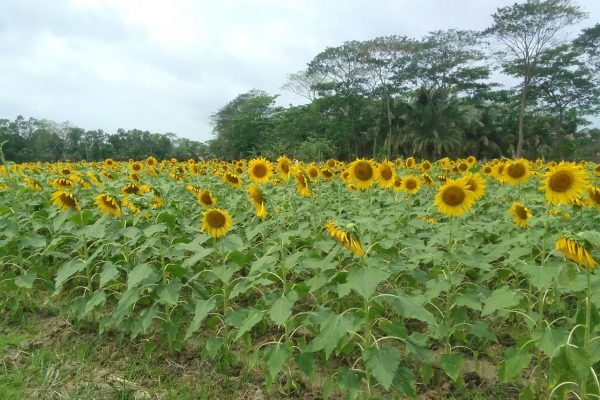Reading Time: 3 minutes
Stories of families losing their businesses due to the pandemic are all too common. But when it comes to families like Molly’s, the fight is much harder.
Molly taught herself to read and write. She is one of over 1.5 million young people with disabilities in Bangladesh who are not enrolled in schools. Molly’s disability makes it impossible for her to walk, but she dreams of being able to work and live a life free of dependency.
When Covid-19 cases rose in Bangladesh in March 2020, Molly found herself stuck inside her home with the rest of her family. Her father owned a small grocery shop. As the lockdown period lengthened, the family began to run out of savings and started to consume what food was left in the shop’s stock. Molly’s father eventually closed down the small shop and fell into debt.
Worldwide, people with disabilities are more likely to stay out of school, live in isolation, and have less savings, as a result of the various social barriers they face. When a disaster strikes, people with disabilities, especially those already living in vulnerable situations, are hit the hardest. If this pandemic has revealed anything to us, it is how existing inequities are further worsened in a crisis, often reversing decades of progress.
In Bangladesh, BRAC’s work in disability inclusion spans across multiple areas including health, education, and skills training. It has been advocating for inclusive cities and workplaces for decades. When the pandemic hit, BRAC ensured that its response included people with disabilities from the very start.

One of the ways that BRAC did this was to build resilience. In partnership with Inclusive Futures, BRAC supported Molly with BDT 3,000 (USD 35) in cash every month, along with hygiene kits for her family.
“The BRAC staff members who came to our house told us that Molly will have access to cash support every month. It helped us to repay our loans and Molly even bought a sewing machine. She knows how to sew clothes and wants to get more skilled at it.”
In Bangladesh, rates of poverty have risen to 30% since March 2020 when the country first went under lockdown. People with disabilities have been disproportionately affected by this economic shock. Even though a year has passed since the pandemic, our staff find that people with disabilities are still not being targeted clearly for emergency support. During our field assessments, we continue to find those with disabilities in far more precarious conditions – eating less and in more distress, as a result of having lost their jobs or disrupted economic support.
Jahangir, 15, is another adolescent that BRAC identified. He would never miss playing cricket in the afternoons. When his district in southern Bangladesh went under lockdown, his uncle, who he lives with, was thinking of sending Jahangir to his mother. His uncle could not cope with providing for his own family. He had boarded up his food stall, his only earning source. Born with hearing and speech disability, Jahangir spent his days depressed and confused, not being able to understand the far-reaching effects of the virus.
People with disabilities continue to be left out of campaigns raising awareness on Covid-19. As a result, it is not only that they lack knowledge on how to protect themselves against the virus, they are also more likely to be unaware of how and where to seek treatment when affected.

Jahangir learning how to repair a mobile phone.
Since March 2020, BRAC’s door-to-door campaign reached 35 million homes, including Jahangir’s, with life-saving information and hygiene kits including soap and bleaching powder. Jahangir is now aware of the basic safety measures like washing hands and wearing a mask. He opened his first mobile money account where he received cash support of BDT 3,000 every month for five months. The support was critical in helping his family stay afloat during the worst period of the pandemic. Jahangir also began to learn how to repair mobile phones under BRAC’s skills development programme. He understands the importance of staying indoors, and bought a table and a few tools to set up his own workspace in the safety of his home.
Molly and Jahangir are part of 2,050 people with disabilities that BRAC identified since August 2020. In partnership with Inclusive Futures, BRAC supported them with emergency cash assistance for five months, along with hygiene kits, as well as skills training so they could better support themselves in the long term.
This has been one of the ways that BRAC built public resilience on the ground and stood beside people and communities most vulnerable in the wake of the global pandemic. We cannot continue to leave out sections of our communities for who vital information remain missing as well as basic resources to survive. For until we are all safe, no one is safe. We must keep people with disabilities at the centre of our work – only then can we emerge from this crisis together and stronger.
To read more about BRAC’s overall response to Covid-19, visit: http://www.brac.net/covid19/
Sameeha Suraiya is a communications specialist at BRAC Communications.
Thumbnail photo: An elderly man on a crutch uses one of the 20 handwashing stations set up by BRAC in a busy market in Gazipur, Dhaka.





